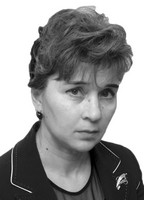Hypothesizing process in research education studies with concern to physical culture and sports
Фотографии:
ˑ:
Teoriya i praktika fizicheskoy kultury №12 2016, pp. 90-92
UDC 796.011
Professor, Dr.Hab. A.F. Zakirova1
Professor, Dr.Hab. I.V. Manzheley1
1Tyumen State University, Tyumen
e-mail: a.fagalovna@mail.ru
The study considers the hypothesizing process in the research education studies with concern to physical culture and sports issues. Authors describe types of hypotheses, linguistic forms used to present them and the key requirements to a constructive research hypothesis; outline the logical, gnoseological and values-and-senses-centred hypothesis-construction plans; and offer the practical procedures and techniques to encourage research creativity. The authors come to conclusion that a mature and constructive hypothesis must meet certain requirements including: verification/ check-up ability; stable and necessary links that may evolve to regularities; non-traditional, nontrivial, uncommon nature (and, hence, disputable, i.e. need to be defended); general/ wide applicability i.e. application to a variety of phenomena other than the ones it was designed to address, without necessarily visible correlations of the both sets of phenomena; simplicity; and clarity. As a result of a research work the hypothesis is applied for, it may be either verified and then even become an element of some new theory, or remain a poorly grounded assumption or trivial pseudo-hypothesis.
Keywords: research methodology, hypothesis, hypothesizing, argumentation, research metaphor.
References
- Bibler V.S. Ot naukoucheniya - k logike kul'tury: Dva filosofskikh vvedeniya v dvadtsat' pervy vek (From science learning to logic of culture: Two philosophical introduction to the twenty-first century) / V.S. Bibler – Moscow: Politizdat, 1990. – 413 p.
- Zagvyazinskiy V.I. Obshchaya panorama pedagogicheskogo issledovaniya po problemam fizicheskoy kul'tury i sporta (Pedagogical research in physical education and sport: Overview) / V.I. Zagvyazinskiy, I.V. Manzheley // Teoriya i praktika fiz. kultury. – 2016. – № 3. – P. 3–5.
- Zakirova A.F. Ponyatiynaya baza sovremennoy pedagogiki (Conceptual framework of modern pedagogics) / A.F. Zakirova // Pedagogika. –2001. – №7. – P. 7-12.
- Zakirova A.F. Evristicheskaya priroda nauchno-pedagogicheskogo gipotezirovaniya (Heuristic nature of scientific pedagogical hypothesizing) / A.F. Zakirova // Obrazovanie i nauka. – 2010. – № 10. – P. 12-30.
- Moskvin V.P. Argumentativnaya ritorika: teoreticheskiy kurs dlya filologov (Argumentative rhetoric: philologist's theoretical course) / V.P. Moskvin. – 2nd ed., rev. and sup. – Rostov-on/D: Fenix, 2008. – 637 p.
- Chernyakova S.N. Formirovanie fizkul'turnoy kompetentnosti bakalavrov v informatsionno-obrazovatel'noy srede vuza: avtoref. dis. … kand. ped. nauk (Formation of athletic competency of bachelors in university information-educational environment: Abstract of PhD thesis) / S.N. Chernyakova. – Tyumen, 2016. – 24 p.
Received 30.08.2016 г.




 Журнал "THEORY AND PRACTICE
Журнал "THEORY AND PRACTICE